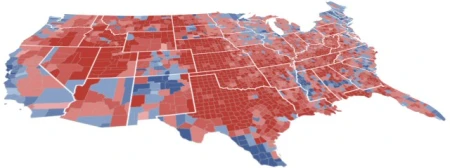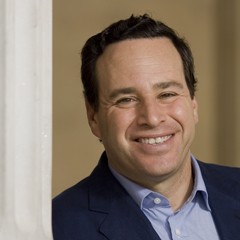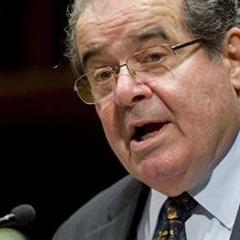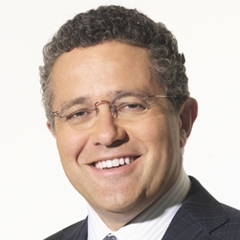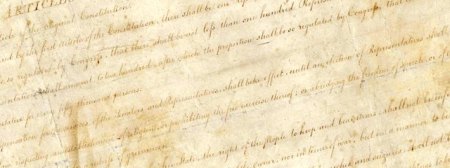2012-11-10
Germans and the world at large breathed a collective sigh of relief when Americans re-elected Barack Obama president of the United States. Which, when you think about it, does not make any sense.
Sure, those less concerned about the niceties of liberty and democracy might be genuinely happy. In the Kremlin, Vladimir Putin can now cash in on Obama’s promise to be more flexible after the elections. The Chinese leadership is said to be pleased that they don’t have to deal with a new face in Washington, even though nobody knows exactly what makes the Chinese happy.
And yes, Secretary of State Hillary Clinton’s steady and skillful course in Asia has brought about some positive change, such as in Myanmar.
But for the average European, Obama has not done a thing to raze the walls that America built around itself since 2001. Quite to the contrary, with new fingerprinting requirements even for legal residents and new fees for U. S.-bound travelers, he expanded on what was once seen as George W. Bush’s xenophobic overreach.
And does anyone remember the 2009 Nobel Peace Prize (also known as the “Thanks God They Got Rid of Bush” Award)? With Guantanamo’s military tribunals in full swing, a kill policy that does not even spare his own citizens (except for a vague assurance not to hunt citizens for sport), and CO2 emissions rising unchecked, Obama hardly lived up to the Nobel Committee’s expectations.
The only role that Europe seems to play for Obama is to be blamed for the Euro crisis, or to deliver military resources to reduce America’s exposure in Middle Eastern hot spots.
So why is it that 90% of Germans would have elected Obama?
Possibility 1: They are naive and ignorant.
It is true that Germany since the re-unification, and in the last four years in particular, had plenty of things to worry about at home and in Europe. Germans have come to expect less from America. So maybe they didn’t look at all the issues above but held on to the messianic image that Obama projected during his 2008 visit to Berlin.
This is somewhat contradicted, though, by the unprecedented level of media coverage that American politics lately receive in the German media — we are talking top-of-the-news, in-depth reporting about every twist and turn in the primaries, the Supreme Court ruling on healthcare, or presidential debates. It seems that to the same degree that the transatlantic relationship has lost substance, the Germans’ interest in the soap opera that is American politics has grown.
Possibility 2: They still hate Bush so much.
The level of animosity that George W. Bush attracted during his tenure is singular. While Americans, more worried about their domestic economy, have been busy blaming the new guy for their problems, the hatred for Bush is still vivid in Europe. Mitt Romney, or any other Republican, is simply judged guilty by association.
While this is an understandable sentiment, it’s not a reasonable one. Conventional wisdom holds that Republican presidents with their free-trade philosophy and “savior of the world” attitude were often more beneficial for Europe. Democratic presidents tended to be more beholden to their domestic interests (say: trade unions) and thus more protectionist in their global policies.
Possibility 3: They genuinely care about America.
Personally, I prefer this third option. The Germans’ sentiment might not be based on any perception of their own benefits from Obama’s presidency, but rooted in fundamental values and a friendly concern for the well-being of America.
That sentiment, naturally, is based not on what is “objectively” better for the United States. That is not only for history to judge, but in fact there are many justified doubts whether Obama is the best person to lead America in these times. His bend-over-backwards desire for compromise, hit leading-from-behind approach on issues of monumental importance, his overly deliberative, wavering decision making — all this may well be more than just a style issue, but rather a substantial weakness with the potential for serious damage.
But I believe there are two things that the Germans see in Obama, and that deeply resonate with them: reason and compassion.
And that, indeed, shines a spotlight on the state of American politics that should give pause. If a political discourse is no longer seen as a debate of two competing visions, but rather a choice between sanity and fear-mongering, between compassion and misanthropy, then there seems to be something fundamentally wrong.
The running commentary from those dark corners of the America body politic on the state of Europe may have done its part to the German response, too. Many there seemed to be happy to point to the Euro crisis, or to any arbitrary anecdotal evidence, as proof of the impending demise of the European “experiment” as a whole.
(What a stark contrast to 20th century America, when her first instinct was not to gloat but to help. Among the enduring evidence of the Greatest Generation’s greatness is that Marshall prevailed over Morgenthau, on the understanding that only when their friends succeed, so will America.)
That against this backdrop the people of the United States chose what the Germans perceive as reason and compassion (over whatever the alternative might have been) certainly gives the Germans joy. And that in this spirit the Germans still wish their American friends the best for their own destiny, despite the misgivings on the past decade, is something that should give all of us hope.
